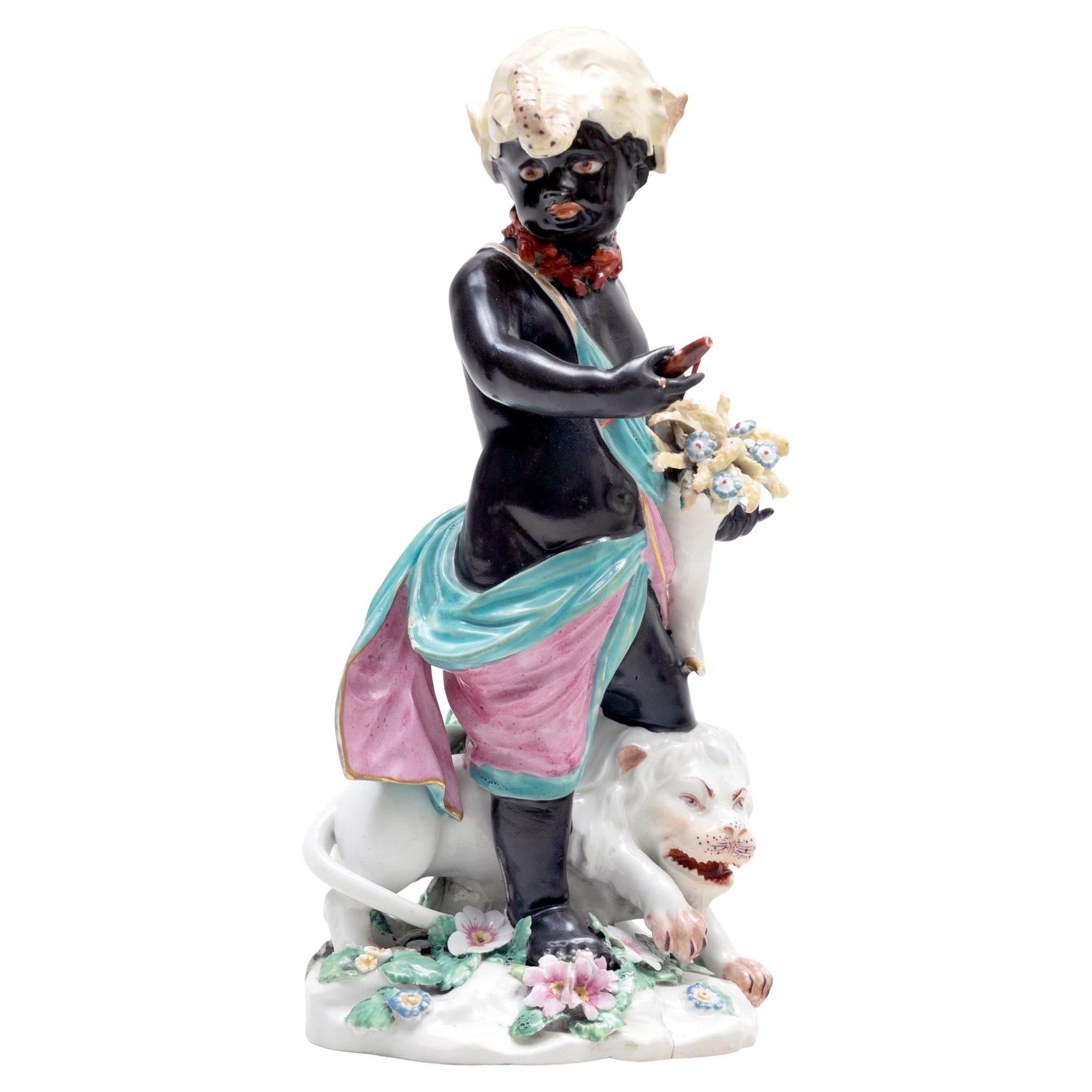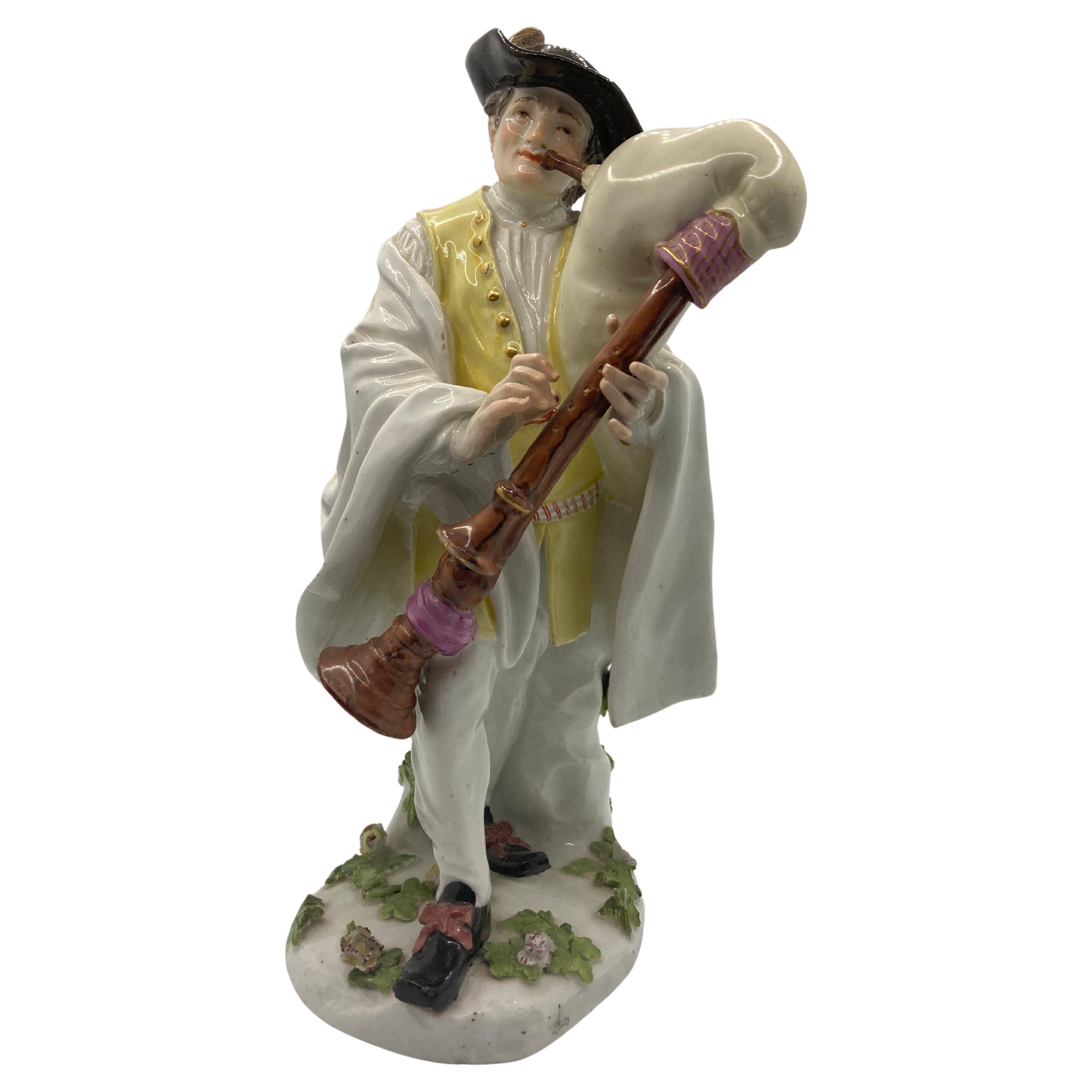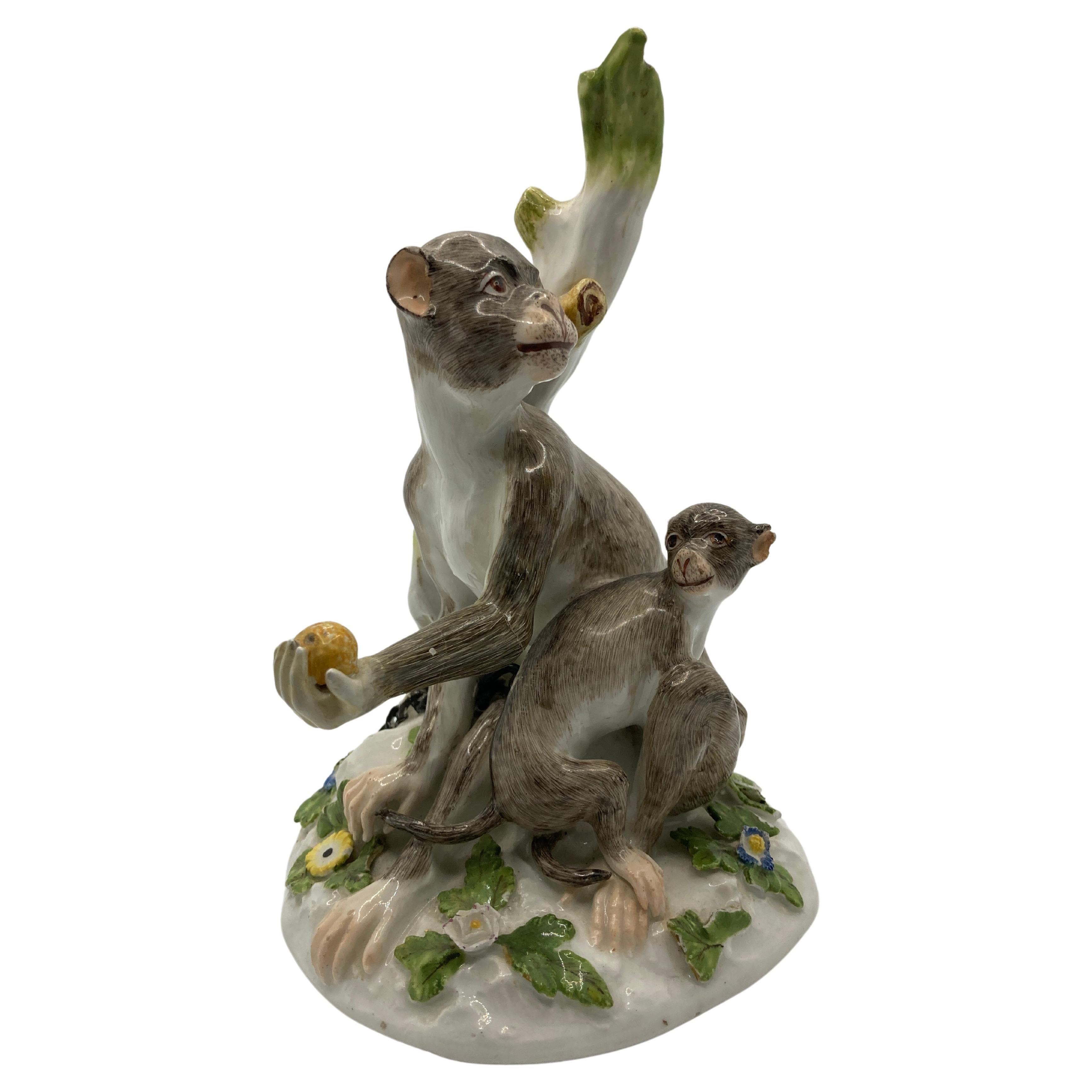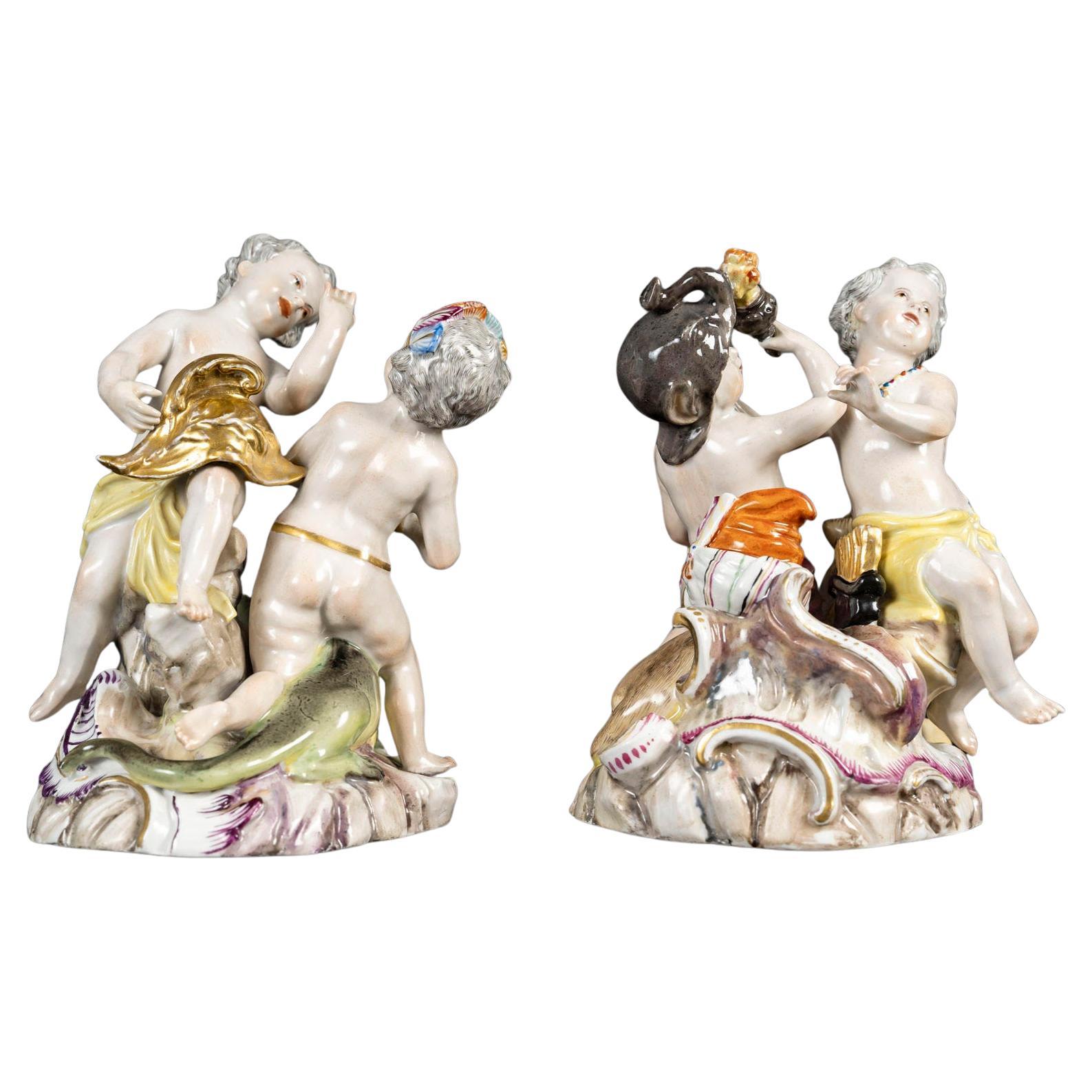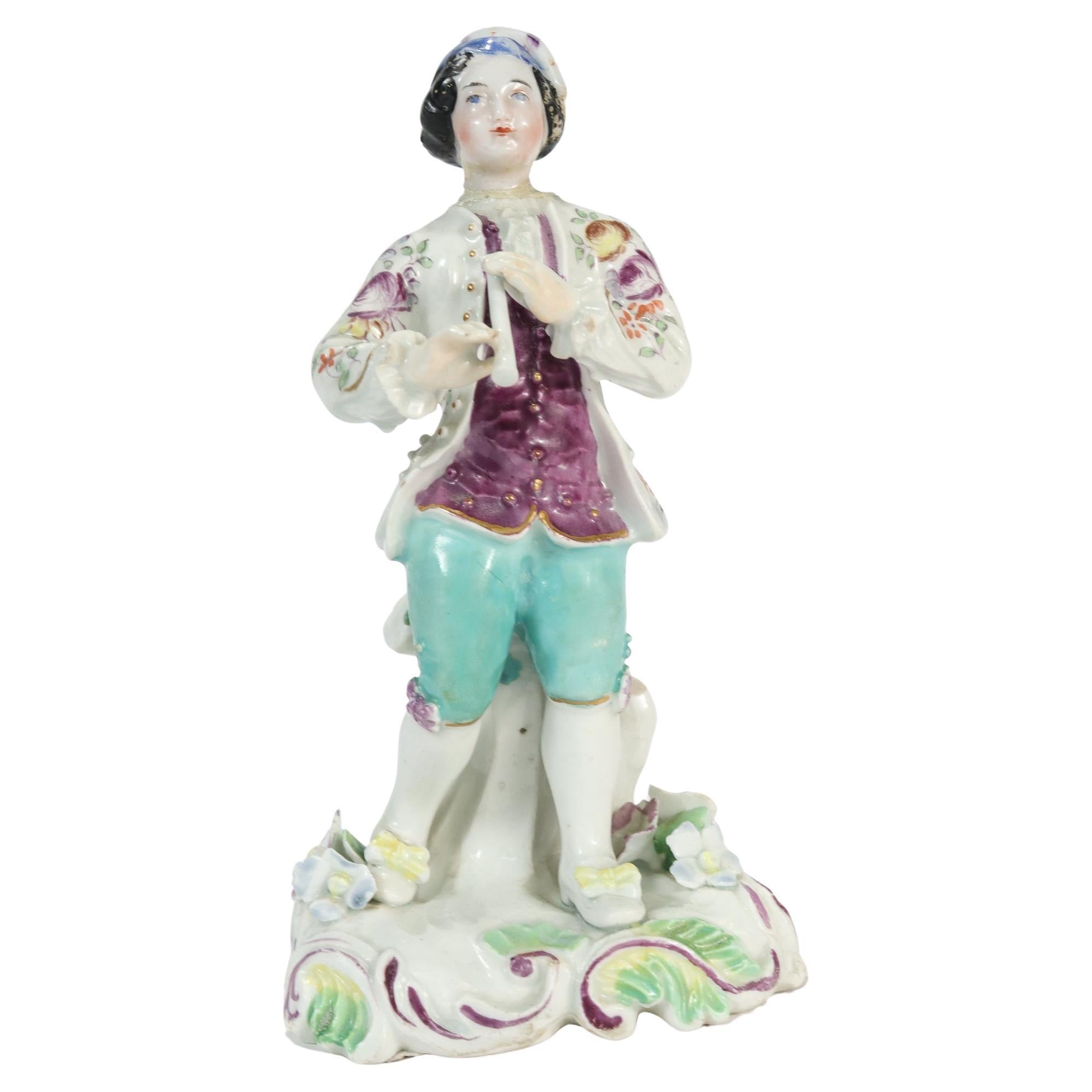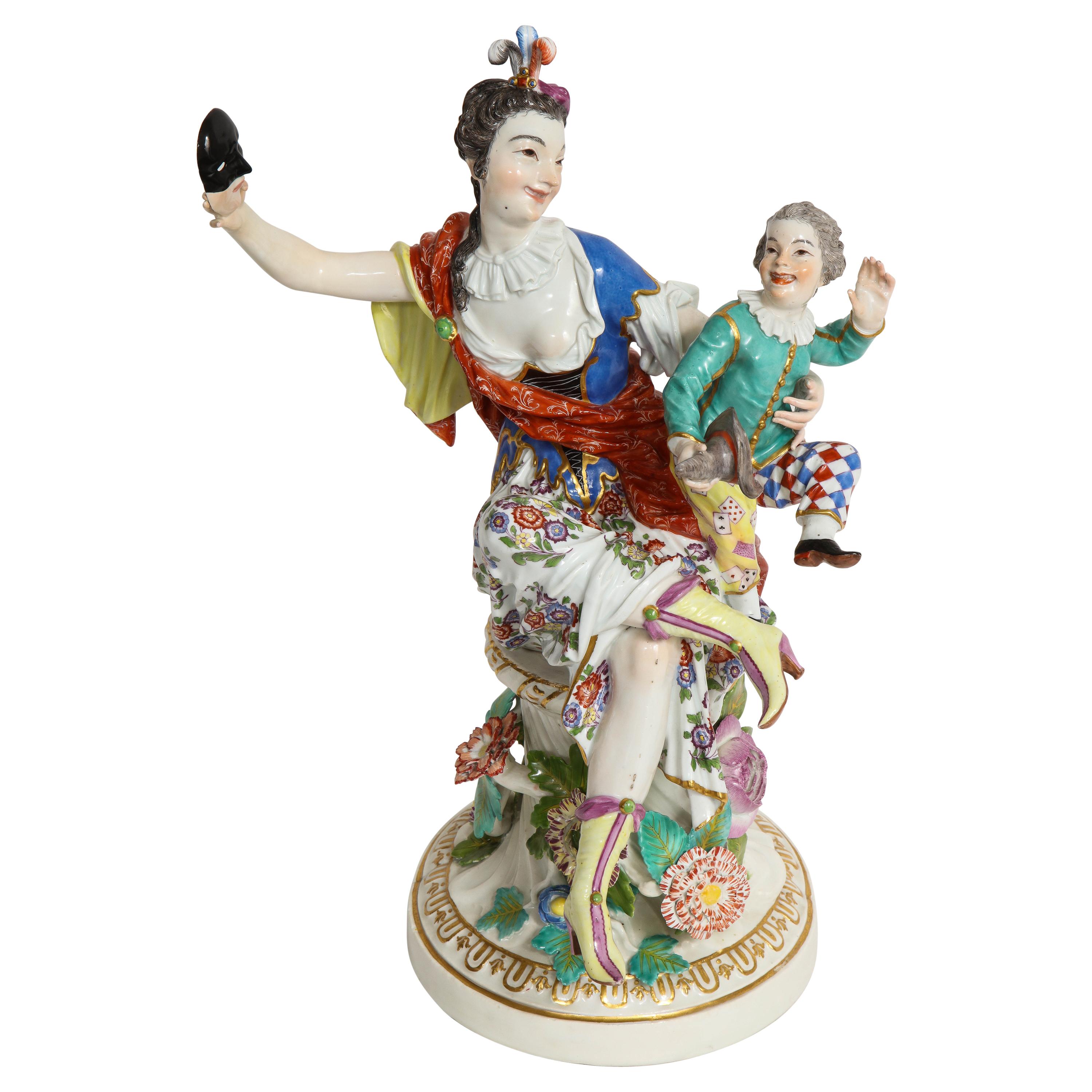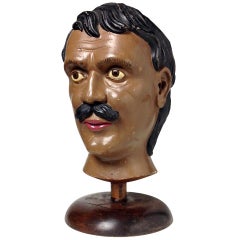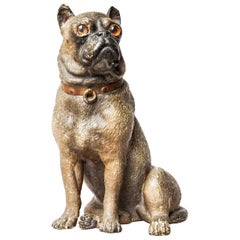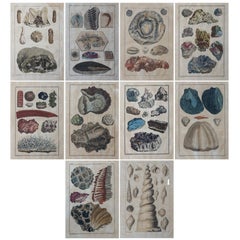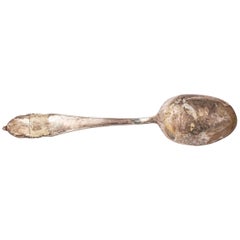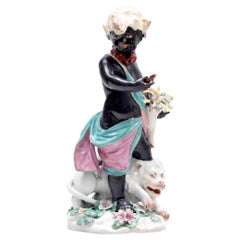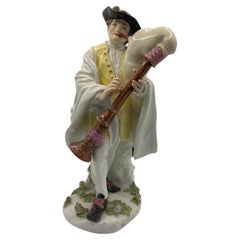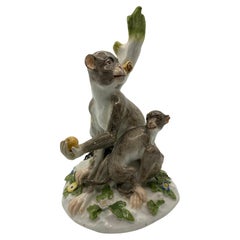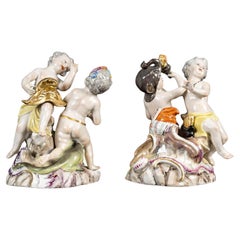Items Similar to 18th Century Viennese Figural Porcelain Greek Mythology Group of Europa and Zeus
Want more images or videos?
Request additional images or videos from the seller
1 of 13
18th Century Viennese Figural Porcelain Greek Mythology Group of Europa and Zeus
About the Item
Beautiful large Greek mythology white porcelain figural group with Europa en Zeus.
I never came across such a large model and think it's impressive by size, details and color.
At the inside of the base there is a mark, a shield. These under glazed shields where used in Vienna, Austria. Viennese porcelain originated early 18th century as they followed the succes of German Meissen and Ho¨chst porcelain, these shield marks where used between 1744-1784 in the "Governments Porcelain Period" before "Sorgenthal".
This group was completely hand assembled from parts of many different moulds, then finely finished and left unpainted only glazed. The finish and the mark at the bottom indicate that this statue has been produced in the 18th century. The 'cracks' in the bottom are from the baking process, you can see lines where different parts where assembled together, that is very common for this kind of porcelain.
This group is about a Phoenician princess abducted to Crete by Zeus.
The myth of Europa has inspired writers, historians, painters and European politicians throughout the centuries; they gave her name to a continent and created several pieces of art depicting the love making of Zeus and Europe.
According to Greek mythology, the Phoenician maiden named ‘Europa’ was one of the many objects of affection of Olympian chief god Zeus. At first sight of Europa, the god was infatuated by her striking beauty and grace. Not being one to ignore his desires, Zeus immediately comes up with a cunning plan. In order to avoid the anger of his jealous wife Hera, and to get his way with the girl, Zeus metamorphosed in a beautiful white bull. While the young maiden was gathering flowers, she saw the bull, and – fascinated by its handsome flanks and gentle behaviour - caressed him and got onto his back. Zeus took that opportunity to abduct Europa and swim to the island of Crete. He there revealed his true identity. 9 Months after this encounter Europa gave birth to Minos, who would become king of Crete.
- Dimensions:Height: 17.72 in (45 cm)Width: 16.54 in (42 cm)Depth: 7.49 in (19 cm)
- Materials and Techniques:Porcelain,Glazed
- Place of Origin:
- Period:
- Date of Manufacture:Unknown
- Condition:Minor losses. Not restored. Europa misses her toenail and the cherub figurine misses some fingers of his left hand and some glazing on his toes. Please look at the pictures.
- Seller Location:Haarlem, NL
- Reference Number:1stDibs: LU1040417666342
About the Seller
4.9
Platinum Seller
Premium sellers with a 4.7+ rating and 24-hour response times
1stDibs seller since 2014
361 sales on 1stDibs
Typical response time: 1 hour
- ShippingRetrieving quote...Shipping from: Haarlem, Netherlands
- Return Policy
Authenticity Guarantee
In the unlikely event there’s an issue with an item’s authenticity, contact us within 1 year for a full refund. DetailsMoney-Back Guarantee
If your item is not as described, is damaged in transit, or does not arrive, contact us within 7 days for a full refund. Details24-Hour Cancellation
You have a 24-hour grace period in which to reconsider your purchase, with no questions asked.Vetted Professional Sellers
Our world-class sellers must adhere to strict standards for service and quality, maintaining the integrity of our listings.Price-Match Guarantee
If you find that a seller listed the same item for a lower price elsewhere, we’ll match it.Trusted Global Delivery
Our best-in-class carrier network provides specialized shipping options worldwide, including custom delivery.More From This Seller
View All19th Century Wooden Carnival, Fair or Advertisement Head of the Strongest Man
Located in Haarlem, NL
This is a very cool guy, it's a wooden head of a 19th century 'the Strongest Man of the World' attraction on a carnival or fair.
The brown color, or maybe the shape of his head, mak...
Category
Antique 19th Century Unknown Sculptures
Materials
Wood
$2,320 Sale Price
20% Off
19th Century Austrian Seated Ceramic Pug Dog with Red Collar and Glass Eyes
By Friedrich Goldscheider
Located in Haarlem, NL
I found this very lovely Austrian cold painted terracotta model of a Pug Dogie in seated position with little red collar adorned with gold pain...
Category
Antique Late 19th Century Austrian Victorian Animal Sculptures
Materials
Terracotta
$4,760 Sale Price
20% Off
18th Century Set of Ten Hand-Colored Illustrations of Minerals by Joseph Buchoz
By Pierre Joseph Buchoz
Located in Haarlem, NL
Complete set of ten paper hand-colored illustrations from Premiere Centurie de Planches Enluminees et Non Enluminees (Decade 6 Regne Mineral) by Pierre Joseph Buchoz, Paris and Amste...
Category
Antique 18th Century French Prints
Materials
Paper
$2,320 Sale Price / set
20% Off
Free Shipping
Early 20th Century Extra Large Belgium Plated Silver Advertising Spoon Sign
Located in Haarlem, NL
Very nice 1920s 1930s large metal industrial advertising sign in the form of a spoon in Rococo style.
The Spoon is heavy and partly silver plate...
Category
Vintage 1920s Belgian Figurative Sculptures
Materials
Metal
$880 Sale Price
20% Off
19th C. Set of English Victorian Cast Brass Pointer Dog Profile Doorstoppers
Located in Haarlem, NL
A wonderful set of two Victorian heavy cast brass sitting English Pointer dogs.
Depicted 'en profile' facing towards or from each other.
They were originally made as doorstoppers, but also very useful as large bookends...
Category
Antique Late 19th Century British Victorian Animal Sculptures
Materials
Brass
$1,200 Sale Price / set
20% Off
18th Century Dutch Oak Cartouche Shaped Box with Key
Located in Haarlem, NL
Very nice cartouche shaped 18th century oak plateau box with working lock and key.
Placed on 5 wooden feet.
Six compartments inside to keep little treasures safe.
Category
Antique 18th Century Dutch Decorative Boxes
Materials
Oak
$2,396 Sale Price
20% Off
You May Also Like
18th-Century Derby Porcelain Figure Emblematic of Africa
By Derby
Located in Downingtown, PA
Large Derby Porcelain Figure of Africa,
From a series known as the "Four Quarters".
Circa 1765
The large figure, emblematic of Africa, is depic...
Category
Antique Mid-18th Century Georgian Figurative Sculptures
Materials
Porcelain
18th Century Meissen Porcelain Figure, 'Piedmontese Bagpiper'
By Meissen Porcelain, Johann Joachim Kaendler
Located in Basildon, GB
18th Century Meissen Porcelain Figure, Piedmontese bagpiper.
Modelled by J.J. Kändler after an engraving by Jacques Dumont, wearing a black hat with brown feather, fur-lined white...
Category
Antique 1740s German Rococo Figurative Sculptures
Materials
Porcelain
18th Century Meissen Porcelain Figure, 'Rhesus Monkey and child'
By Johann Joachim Kaendler, Meissen Porcelain
Located in Basildon, GB
18th Century Meissen Porcelain Figure, Rhesus Monkey and child, model 1464, circa 1750 .
Modelled by J.J. Kändler. Monkey, with outstretched hand holding fruit, and child chained ...
Category
Antique 1740s German Rococo Animal Sculptures
Materials
Porcelain
Pair of 18th Century or Early 19th Century Meissen Porcelain Groups.
By Meissen Porcelain
Located in Saint-Ouen, FR
Pair of 18th century or early 19th century Meissen porcelain groups.
A pair of 18th century or early 19th century Meissen porcelain sculpture groups representing the 4 continents.
H...
Category
Antique Late 18th Century German Louis XVI Figurative Sculptures
Materials
Porcelain
Antique 18th Century Bow English Porcelain Figure of a Flute Player
By Bow Porcelain
Located in Philadelphia, PA
An antique English porcelain figurine.
By Bow.
In the form of a boy clothed in 18th century garb and holding a flute.
We've noted losse...
Category
Antique 18th Century English Georgian Porcelain
Materials
Porcelain
Rare 18th Century Meissen Porcelain Group of a Thalia with a Harlequin Child
By Meissen Porcelain, J.J. Kändler
Located in New York, NY
An important, extremely rare, and rather large 18th century Meissen Porcelain Group of a Thalia with a Harlequin Child, By Johann Joachim (J.J.) Kändler, Circa: 1744. This is an incredible and extremely rare 18th century Meissen Porcelain piece modeled by the greatest Meissen modeler ever in the Company, Johann Joachim (J.J.) Kändler.
Thalia can be seen seated on a gorgeous hand-carved and hand-painted flowered and vined porcelain pedestal. Her right arm is raised holding a Phantom of the Opera Black and White Mask, while in her other arm is a young Harlequin dancing and singing holding a hat. Thalia is wearing a gilt-edged dark blue bodice with white floral decorations over a black corset draped in a red-over-yellow robe...
Category
Antique 18th Century German Rococo Busts
Materials
Porcelain
Recently Viewed
View AllMore Ways To Browse
Greek Island Furniture
White Porcelain Group
Vienna 18th
Greek God Sculpture
Porcelain Figural Group
Porcelain Figure Groups
Large Greek Statue
Zeus God
Sculpture Of Zeus
Antique Austrian Porcelain Marks
German Porcelain Girls
Hand Of God Statue
Vienna Statue
Austrian Mould
Porcelain Vienna Flowers
Antique Crete
Large German Porcelain Figure
Large Porcelain Statues
